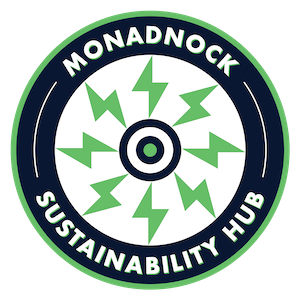We are experiencing a desperately needed renaissance in energy production in our country. We have seen a dramatic acceleration of shale gas and oil production while the price of solar energy has fallen by over 40 % in the last few years. The shale gas bonanza and rapid increases in solar and wind power have led to lower carbon emissions as our reliance on coal fired electricity has declined. Since climate change poses the greatest threat to not only more humans but more species than any other challenge we face this is very good news. But we are letting our children and grandchildren down by failing to deal with our carbon emissions more aggressively.
It’s not surprising that millions of dollars of fossil fuel money has fooled some of us into doubting that over 95% of climate scientists around the world are right. While we delay action to reduce our carbon emissions the costs are mounting like the risks of droughts causing food prices to escalate. Have you heard the news about California’s drought lately? Rising sea levels and severe storms will displace thousands and possibly millions which will threaten global economic and political security.
The US military gets it-acknowledging these threats are real and planning accordingly; many major corporations get it and are budgeting for carbon pricing in their forecasts. Yet a flood of fossil fuel money has corrupted our political process preventing us from dealing with mankind’s greatest challenge.
Energy provides the basis for our lifestyles and economy but we take it for granted. I grew up in an era of cheap and abundant energy and wasting it was not a concern. After decades of increasing reliance on imported fossil fuels, new techniques for oil and gas extraction have changed this imbalance. But we shouldn’t let this newfound bonanza lull us, these techniques wouldn’t have been economical a decade ago when oil was in the $30/ barrel range but the cost has risen to $100/barrel today. Energy costs have risen dramatically and we aren’t even paying for the damage carbon is already causing let alone the escalating costs for increasingly severe storms ($139 Bn in 2012 with 75% by taxpayers). Even if we could somehow stop burning fossil fuels we’ve learned that the carbon accumulated in our atmosphere will be there for decades continuing to warm the planet. This might sound good to us during a long, cold winter but prolonged droughts, violent storms and rising sea levels won’t be appreciated by future generations.
We don’t have to wait for our government to stop denying the science and the mounting evidence, there are options that make good sense that we can pursue now that will save money, improve comfort and reduce our impact on climate change. Have you noticed bare spots on your roof where the snow melts quickly or ice dams? These are signs of heat leaks which you can resolve by sealing air leaks and upgrading insulation. A professional energy auditor can provide details and guidance. When I was young I was more impressed by a car’s performance, horse power and handling now I value high MPG. When it comes to electricity, there’s evidence that our electrical grid is deficient and out of date, as old power plants are closed concerns have been raised that there may not be enough new capacity coming on line to meet our demand especially as we see more peak demand for AC during hotter summer days.
There’s an exciting opportunity for those concerned about where their electricity comes from and the reliability of our supply. Community Solar (CS) is emerging across the United States spearheaded by people seeking local alternatives to conventional energy sources; a hedge against rising fuel costs; reduced carbon emissions; and energy independence. The Monadnock Sustainability Network (MSN) in collaboration with a team of students from Antioch University New England is working to establish a core group of interested citizens and potential investors to support the development and implementation of the first Monadnock Community Solar initiative (MCSi) project here in our region.
The Antioch team will evaluate and present various options for CS projects to interested citizens on March 13th. The core group of citizens will be formed to determine the best option for them to pursue based on the research done by the student team, then the Antioch team will develop an implementation plan for the first Monadnock Community Solar initiative (MCSi) project including site options which will be presented in May.
To learn more the initial meeting to launch the MCSi will be held on Thursday, March 13th from 6-8 pm at Antioch University New England, in the Community Room or visit greenmonadnock.org.
John Kondos is a founder of Home-Efficiency Resources, Solar Source, a division of the Melanson Co. and the Monadnock Sustainability Network, whose mission is to promote credible, sustainable practices in the region.
Co-op Power of Southern Vermont’s Brattleboro Community Solar System
